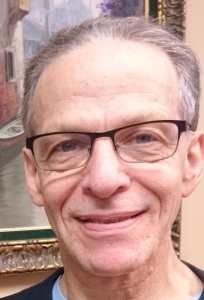 Newsmaker Publicity Campaign Questionnaire
Newsmaker Publicity Campaign Questionnaire
 Why You Should Buy This Book Series and How It is Unique.
Why You Should Buy This Book Series and How It is Unique.
If applicable, would you like us to use any personal background about you such as hobbies, race,
religious, medical conditions, marital status, family, etc. that may help audiences be more interested in
you and your book?
I love to shoot basketballs from the NBA 3-point line
I have an uncurable lymphoma, but it bottomed out because I kept my spirits up and kept working and writing.
I also wanted to survive to see my children marry, have children, etc.
Would you like us to use your current employment information on your press material?
Yes
Are there any relevant facts, figures, research you would like us to use in your press material? If yes,
please provide website addresses if applicable. This includes any social networking websites or blogs
currently under your control.
Development and Causality: Neo-Piagetian Perspectives (2011) book (springer.com); see Psychology Today blogs; President of ASAPIL (Association for Scientific Advancement in Psychology Injury and Law, asapil.net) and Editor-in-Chief of Psychological Injury and Law Journal
College(s) attended (if applicable):
McGill University (BA); University of Western Ontario (MA); Université de Montreal (Ph.D)
Language(s) Spoken:
English and French
Please describe your personality.
• dedicated, but have a relaxing side
• like challenges, like children
• open to ideas, but must reflect on them
• open to people, but slow to warm up
Any other personal and professional goals for this campaign:
• help readers encountering psychological difficulties
Please name any specific local or national print media or broadcast programs you believe would be
interested in reviewing your book, or featuring you or your book in an interview or article? Please note
the reason why, if not obvious.
• Scientific American Mind
• Psychology Today
Please write a brief autobiography, noting your professional credentials and any lifestyle credentials that make you particularly well qualified to write this book, including professional accomplishments, past employment, books published, etc. (Don’t be shy—sell yourself! If there is anything you wish to mention for our information only and not for publication, please make sure that is carefully noted.)
I am devoted to helping people in one way or another, from family to students to patients. Being a professor and a psychological practitioner allows me to bring current knowledge into my work with students and patients, and to help create it for other researchers and practitioners. I publish extensively and have seen many patients, and the messages in the book reflect both. They are also good guides to daily living from a psychological viewpoint.
About The Book
Why did you write this book? Is there any “back story” that inspired you to write this book?
This book consists of blogs written for Psychology Today. They are my most current ideas on psychological self-help and understanding mind and behavior. The book is the ninth in my self-help book series, Rejoining Joy, with 8 books published in 2011. The answers to your questions apply to the full book series for the most part.
Which do you feel is more interesting to others, you or your book and why?
By all means, the book; it represents the best of my thoughts and my helping motive.
Please write a synopsis of your book:
The book provides strategies and techniques for effective ways of daily living from a psychological viewpoint that one can apply through self-discovery and hope for improvement.
What is the most controversial aspect of your message or book, if applicable?
Some people cannot or will not see a potential for self-change and improvement, but we all can do it, especially, if we learn how and use our natural impulse to find positives and be positive.
What themes in your book do you believe are relevant to current news topics, society, the world, or life in general?
I prefer to believe we all can rejoin joy, find positives, be positive, change and replace bad habits,
develop, improve, and grow, at least to a degree.
• self-understanding and self-growth can happen in all of us
• there are simple strategies and techniques that can help in this regard
• seeing the big picture of daily living and how to change can help this way, too
Are you comfortable talking about your book in public?
Yes
Is your book based on your own life in any way? If so, please explain:
everybody learns from what happens in their lives, from earliest stages to the later periods. The blogs in the book were written in a 10-month period in 2011. There are not blog collections in psychology like this. I wrote it as a book of wisdom that guides readers in daily living. How is your book different than others out in the market? What needs does your book meet that makes it a must for someone to buy?
I wrote each blog as if it were my last message to the public, given my illness. It should be an essential reading for any person wishing self-improvement and self-help. It offers advice for daily living that can help with family and children, relationships, study, and work. It can be useful not only by the general public but also by mental health therapists and their patients.
Are there any additional comments you want your publicist to know about you and your book?
The book is usually light reading and usually written lightly. It asks the reader to consider self-change and self-growth. Once that process starts, the path is easier to follow. Keeping healthy goals and a healthy lifestyle helps anybody in adopting a healthy way of daily living. This book aims to help the reader reach these objectives and keep them in focus even in the most difficult circumstances. It covers material related to family and children, to relationships and to study and work, too, so it would be interesting to a broad audience.
For Interviews
Days and times you are not available for interviews. We call these “blackout” dates and times and we will not schedule you during these times.
I teach Monday, Wednesday, and Friday from 12-3 pm.
Are you willing to travel for interviews? If so, how far?
Anywhere.
What topics, related to your book, do you feel qualified to discuss on the air or in an interview?
• adult development/ growth
• child/ teen development/ growth
• self-help (psychology)/ change
• stress management/ bad habits
• families/ couples
• psychopathology
• psychotherapy
What topics, NOT related to your book, do you feel qualified to discuss on the air or in an interview?
Psychological injury and law (e.g., PTSD/ pain/ concussion after a car crash, and subsequent court
cases).
What, if any, media experience (interviews, TV appearances, etc.) do you have? Please list.
Not much.
If applicable, what are the specific problems/challenges does your target market face that your book can solve?
• as mentioned, self-help needs in psychology (including in relationships, family)
• What three to five things do you want the media to know about you? Examples may include certain
• messages, themes in your book, your background/education or accomplishments?
• Professor/ Teacher
• Practicing clinician
• Researcher/ Writer
• Appear in Court
• Wrote a self-help series (Rejoining Joy)
What are your FIVE key messages or talking points? If you were allowed to only make FIVE statements
about your book’s theme or message what do you want readers/listeners to remember about you and
or your book?
• self-help and self-growth from a psychological perspective is your birth-right
• everyone can do it
• the strategies and techniques give a good basis
• it requires constant effort and focus
• but the rewards are constant and great
The next step is to build upon these five key points by giving us several sentences of “conversation” about each talking point listed above that will help audiences understand your talking point better. (In an interview, the talking points can become how the host moves the interview along. Your conversation about these talking points helps the host understand where you are going with your answer and when to move to the next talking point. Plus this helps you learn to convey a message in 3 or 4 sentences!)
• development and change is part nature and part nurture, but also part ourselves
• we develop good habits and bad habits, but can learn to control and replace the bad habits
part of the way of doing that is to use our internal motivation to change for the better, which is potentially present in all of us
• the will to develop, grow, and change can be activated in all of us and increase
strategies concern general principles, such as trying to keep positive and trying to control or replace bad habits
• techniques concern specific procedures, such as breathing exercises, visualizations, and relaxation exercises
• they also concern working with errors in thinking and working with inappropriate emotional actions and reactions
• development, change, and growth does not take place without effort and focus, but once initiated it can continue beyond the initial stages by itself
• nevertheless, it needs constant checking, and also good social support helps
development, change, and growth are their own rewards
• you will feel great as you define your self and your future in new and positive ways and live new ways in your daily living
• there will be effects people will notice in family, in relationships, and outside the home, e.g., in work or at school
• sometimes psychological counseling is needed to deal with difficult issues, but self-help might even work with some of these difficult issues and replace counselling
• when self-help is not enough, psychological counseling can help, but self-help can be a good adjunct
For TOGInet Radio Interviews
Upon receipt, we will forward your responses along with a copy of your book to the interviewer with
TOGInet, who will contact you regarding the scheduling of your radio interview. We recommend
keeping a copy of this questionnaire and having it nearby when you’re called for your interview, as this
will help you make the most of your 15 minutes by conveying what you want about your book.
Please fill out your answers to the questions posed below completely and in as much detail as
possible. (Please feel free to answer these questions on a separate sheet so you are not limited with
your responses in the space provided)
1. How did you come to write this book? What was your motivation?
It is a collection of Psychology Today blogs. Together, they give good self-help advice on healthy daily
living from a psychological viewpoint.
2. Who does the book appeal to and why?
• the book should appeal to anyone interested in psychology and psychological self-help
• It might help psychotherapists and other mental health professionals in their work as well as their patients
3. What one thing do you want readers to learn/take away from this work?
• Development, change, and growth are all possible for you
About Rejoining Joy – Free Download

Rejoining Joy Snapshots

